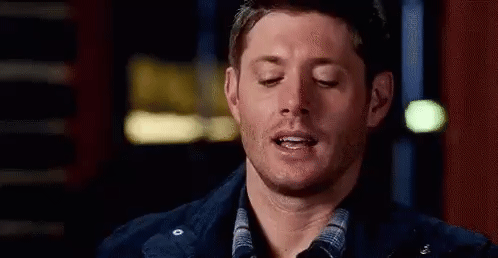I learned about Liana Ruppert on March 16, when loyal Bioware fan Connor Clay interrupted Fallout fans who were discussing the results of an investigation conducted by citizen journalist David Cernat. The investigation revealed that last year’s #MeToo accusations against game designer Chris Avellone were unsubstantiated.
Using hateful language, Connor disagreed with Cernat’s conclusion. He addressed the designer as a rapist and referred to Game Informer’s author Liana Ruppert as someone who accused him.1
Connor delivered this piece of highly specific information so confidently that I had no choice but to work off his lead.
“I didn’t say I was a victim”
My initial research into Liana Ruppert revealed her stellar career in game journalism. A BA graduate, after years of managing a fan website, Liana subsequently got editorial positions at CBS/ComicBook, Prima Games and Greenlit Content/ReKTGlobal, and, finally, Game Informer.
In regards to Avellone’s situation, I found that Ruppert indeed had used the word ‘rapist’ to describe him when referring to his defenders, alluded that she had information yet unknown to the public,2 and dropped broad hints about her own "run ins" with him.3
Given that in June, the journalist teased that she was going to accuse “a person that is widely loved in gaming” of an attempt of sexual assault,4 that could convince her audience that she pointed at Avellone.
Initially, I saw Ruppert’s ambiguous statements as miscommunication rather than misinformation, so I asked her to clarify her words.5
The journalist did not reply.
I repeated my question a month later.6
In response, Liana Ruppert refused to acknowledge that she weaponized her following - intentionally or no.7 She also refused to describe in accurate language what she had meant to say.8 And that was a problem.
When a public figure throws vague lines like: "Just wait until I can work up the courage to talk about attempted sexual assault from a person that is very widely loved in gaming... Also, he admitted to everything... I’ve had run ins myself with him... I’m not going to have rapist apologisists coming up here explaining things they have no idea about… You don’t know my experience with him, or what I’ve seen from him…", people take it seriously.
In the absence of factual information, people will jump to wrong conclusions.
Liana knows exactly how she worded this tweet. "I didn’t say I was a victim" is not the same as "I am not his victim". People interpret such evasive statements as “But she didn’t say she wasn’t”.
Given that a virtuous outrage is rewarded in society, this deliberately ambiguous language incites certain individuals to target others.
Misleading verbiage used by Ruppert in regards to Avellone leaves an impression that the journalist wants to belong to what Kelly Bristol once called "this godawful club of victims".
It makes the public question either Ruppert’s compliance with the corporate standards - or impartiality of Game Informer’s editorial team.
Since “maintaining a social media presence" is one of the principal responsibilities Game Informer’s EIC Andrew Reiner expects from associate editors,9 Ruppert’s online behavior aligns with his editorial policy. And though we cannot know what instructions Reiner gave to Liana, we can see what guidelines BBC - another big name Liana put in her bio - provides to its staff in this regard:10
Beware the impact of spreading unconfirmed rumours or unverified content, particularly in breaking news situations.
Assume anything you do or say can be seen by anyone.
"What was said was right and factual"
Aside from ambiguous language, I also found that Liana Ruppert reports factually incorrect information.
It came as a shock to many when sexual assault allegations regarding him came to light, and an even bigger shock when he admitted guilt to many of the reports... He himself has even responded to several, telling fans not to forgive him and that he is guilty.
These are quotes from Liana's coverage11 of the accusations against Chris Avellone, and they are factually wrong.
The game designer did not admit the accusations.
In fact, he did not even address their subject.
Instead, he profusely - in 650 words, to be precise - apologized for a personal matter to a third party. And that person, Liana's friend and current Bioware community manager, did not make accusations.
It does not really matter why Liana Ruppert misinformed the public - due to reading comprehension problems or the conflict of interest. What matters is the seniors of Greenlit Content / ReKTGlobal, responsible for corporate policy - Christopher Buffa and John Benyamine to name a few - failed to do basic fact-checking.
"Then he should not have publicly stated that what was said was right and factual".
Ruppert’s responses display attempts to reframe the conversation by any means - except checking the veracity of information.
She expects the public to believe in her bare word: "I cited what he himself publicly admitted to... An entire thread the day the accusations went live. They are also embedded in the stories around that time... my coverage was all based on his own statements."
But it takes seconds to check the URL in her coverage to see that it does not lead to the source. And that raises questions about Greenlit Content / ReKTGlobal standards of working with sources.
“I don't claim to know why he deleted them”
There is nothing wrong with being wrong. Making mistakes is an inescapable reality of any profession. It is entirely possible for a professional journalist in breaking news situations to misread a private “I’m sorry” as a confession of crime.
An expected response from any professional in such a situation is to acknowledge the mistake and fix it.
Not from Liana.
Unable to confirm her coverage with sources, she opted for falsification. In order to confirm one fake claim - Chris Avellone admitted his guilt - the journalist constructed a new fake claim - Chris Avellone deleted his confession.
Liana: He may have deleted the thread, if he did, then I'm sure he had a reason [...]David: He did not delete anything. You simply misread his tweets [...]Liana: There was an entire thread and when I just went to look, most of them were gone, including the one that said ‘You should not forgive me’ and admitted guilt. Those are also now gone. I don't claim to know why he deleted them.David: None of them are deleted and you misread them in the first place. This is what you remember [...]Liana: They were deleted, that's fine if you don't believe me. I don't require you to believe me. I wish I would have taken screenshots instead of embedding [...]Kraslavsky: Actually no, none of them were deleted.Liana: Actually, they were, but alright. Like I said, I don't really care, I didn't delete them. Maybe a pub told him to take them down because it looked guilty. I don't know. But it's very clear that you guys have your mind made up.12
Notice how easily her mind transformed a conjecture “he may have deleted” into a fact “they were deleted”. And without a respite, it sprouted a new conjecture “maybe a pub told him”.
Imagine a doctor who falsifies lab results instead of acknowledging a medical error. Imagine a programmer who attacks people reporting bugs instead of thanking them. Imagine a policeman who lies to the public that the suspect made a voluntary statement.
This reaction is not a response from a professional. This is a reaction of a child who heaps lies to avoid their wrong-doing being exposed.
But does Liana indeed, like some preschoolers, have fantasy-reality confusion?
I doubt it.
“Everything here is a lie, every word”
Cornered with factual evidence of her misinformation, Liana blocked everyone and went into a slander spree.
According to Ruppert’s disconnected claims, I lied (no source), mocked her rape (no source), performed identity theft/impersonation to get addresses (no source), made demands to the third person (no source).13
And I’m not the first person who faced a similar response from Ruppert.
Before, she had accused David Cernat of harassing her because of her army background (no source);14 made slanderous remarks about her teammate (no source);15 accused her ex-teammate of her attempt at suicide16 (disproven by her own testimony on April 1517).
Her behavior might seem like a compulsive outburst of emotions; however, Liana is very selective in her outrage. For example, when people begged the journalist - for months - to help a survivor, she did not even spare them a like.18
This selectiveness is not the behavior of a mentally troubled person.
This is a mode of action of a corporatist gaslighter.
And indeed, she badmouths her Prima Games teammate19 - but blesses her boss John Benyamine.20 She badmouths CBS colleagues21 - but blesses her boss James Viscardi.22 She spreads misinformation and slander - yet, she holds a managerial position, and her bosses have a patriarchal protectiveness of their girl.
That means all her malpractice and seemingly frantic outbursts are aligned with the unspoken policy of her line managers.
“He admitted to everything”
The narrative of voluntary confession as an incriminating instrument is not something new. In 1976, Randall Adams was reported as having admitted to killing a policeman:
‘The Morning News’ in Dallas County stated that I had signed a confession, that I had confessed to the killing of Robert Wood and this and that, and they had their killer and they were ready to go with it. The statement that I signed for Dallas County was never and never would have been anything as "a confession", but yet, they labeled it as such.23
Primed by media coverage about his voluntary confession, the jury found him guilty, and in 1977, he was sentenced to death for the murder he did not commit.
The Kafkaesque trial of Adams laid the foundation for The Thin Blue Line, a documentary exploring what Hannah Arendt called the banality of evil
- when monstrous deeds are done by people rather empty than evil.
Thanks to Ruppert’s coverage labeling Avellone as a confessed criminal,
Prima Games became the only game news outlet so far that resorted to a direct lie.
But the creepiest discovery was yet to come.
“You ever see someone disappear on here, search their @ and see they were sufficiently removed from the paint?”24
These words best capture a feeling of unease that gripped me when I found that Avellone was not the first victim of the “admitted to everything” narrative. A few months earlier, Liana had applied the same narrative to another person
- and that person was “sufficiently removed from the paint”.
“You put his name out there… Dude. I asked you not to. I begged you not to. And you did it.”25
Even his name became tabooed, so nowadays, nothing can be found left of him but an abandoned Muckrack account and a few messages in the Wayback Machine.
And hatred.
Undiluted hatred by hundreds of people who used to be his friends.
The campaign against Avellone at its peak did not come close to the level of hatred which game industry PR professionals openly display towards that person.
- He’s a cancer
- A cancer that you beat though.26
Of course, when you observe such a level of hatred, it inevitably makes you wonder,
Who is Robert Workman?
[To be continued…]







Errol Morris. The Thin Blue Line, 1988.











